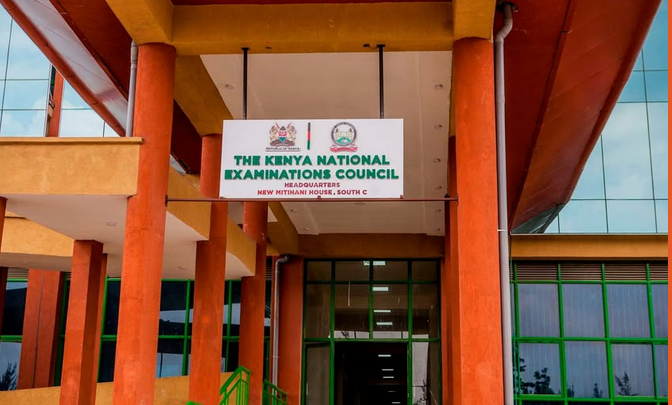What happens during first 9 days of Dhul Hijjah as Muslims begin fasting and millions prepare for pilgrimage

In Eastleigh, a good number of people have already begun fasting from today. Many of them are expected to continue the fast daily until the 5th of June.
The twelfth and final month of the Islamic lunar calendar, Dhul Hijjah, officially began today after the moon was sighted on Tuesday night across the globe.
This announcement marks the beginning of one of the most spiritually significant times for Muslims, both for those undertaking the pilgrimage in Mecca and for those observing it from their home countries.
More To Read
- More than 40 Indians feared dead in Saudi Arabia bus crash
- 5,000 Kenyan Muslims to take part in 2026 Hajj pilgrimage
- Hajj pilgrims warned against using unauthorised agents to avoid fraud
- Mombasa Hajj agents cry foul over SUPKEM's control, seek State intervention
- Eastleigh residents find unity, joy in Eid-ul-Adha celebrations amidst harsh economic times
- In Pictures: Muslims countrywide celebrate Eid-ul-Adha
During the first nine days of Dhul Hijjah, Muslims who are not in Saudi Arabia for Hajj often observe fasting, although it is not mandatory. These days are considered some of the most sacred in the Islamic year, and fasting during this period is viewed as a highly rewarding act of worship.
The practice allows Muslims to engage in reflection, prayer, and self-restraint in the days leading up to Eid al-Adha.
In Eastleigh, a good number of people have already begun fasting from today. Many of them are expected to continue the fast daily until the 5th of June.
While not compulsory, fasting during these days is a widely observed tradition among devout Muslims in the area, aligning with practices seen in Muslim communities around the world.
Of particular importance is the 9th of Dhul Hijjah, the Day of Arafah. On this day, Muslims who are not performing Hajj are strongly encouraged to fast. The Day of Arafah is considered one of the most spiritually significant days in the Islamic calendar.
Fasting on this day is a recommended Sunnah and is believed to expiate sins from the previous year and the year to come.
The Prophet Muhammad (peace be upon him) is reported to have said, “There is no day on which Allah frees more people from the Fire than the Day of Arafah,” according to Sahih Muslim.
In Eastleigh and other Muslim communities around the world, it is expected that nearly everyone who is not on pilgrimage will fast on the Day of Arafah. While fasting is not obligatory, it is emphasised and widely practised due to its spiritual benefits.
This stands in contrast to those on pilgrimage, as pilgrims at Arafat do not fast that day due to their engagement in the physical and spiritual demands of Hajj.
As Muslims at home observe these practices, millions of pilgrims from various countries have already arrived in Mecca, Saudi Arabia, for Hajj.
The pilgrimage is one of the five pillars of Islam and must be performed at least once in a lifetime by those who are physically and financially able.
This involves declaring the intention to perform Hajj and wearing special garments, two unstitched white cloths for men and a simple, modest dress for women. While in this state, pilgrims follow strict rules, including refraining from grooming, quarrelling, and engaging in sexual relations.
After entering the Ihram, pilgrims begin with Tawaf, the act of walking around the Kaaba seven times in an anticlockwise direction.
This is followed by Sa’i, where they walk briskly back and forth seven times between the hills of Safa and Marwa, commemorating Hajar’s search for water for her son Ismail.
On the 9th of Dhul Hijjah, pilgrims travel to the plains of Arafat to perform Wuquf. This rite involves standing in prayer and supplication from noon to sunset. It is regarded as the most critical component of the Hajj.
Pilgrims do not fast on this day because of the physical demands of the ritual.
After sunset, pilgrims proceed to Muzdalifah, where they spend the night under the open sky and collect small stones. These stones are used the next day for Rami, the ritual of throwing pebbles at three pillars representing the devil, symbolising the rejection of evil.
Following this, pilgrims perform Qurbani, the slaughter of an animal, to honour the willingness of Prophet Ibrahim to sacrifice his son in obedience to Allah’s command.
Once the sacrifice is completed, male pilgrims shave their heads while women cut a small portion of their hair. This act symbolises spiritual renewal.
Pilgrims then return to the Kaaba to perform Tawaf al-Ifadha, another seven circumambulations, and later conclude their pilgrimage with Tawaf al-Wada, the farewell circumambulation before leaving Mecca.
Top Stories Today














































